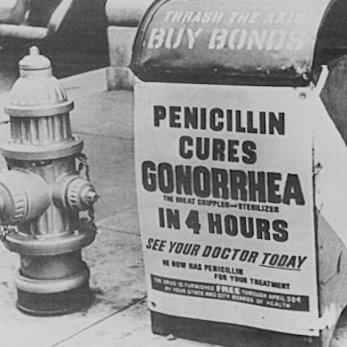Every time I go to the doctor's office, I'm asked if I'm allergic to anything. "Penicillin," I say, dutifully. And I've been saying that every year since I can remember.
When I was a child, I had a persistent sore throat, and my mother gave me some amoxicillin (a penicillin derivative) for the infection. It did not go well. I broke out in a rash on my hands and feet, indicating an allergic reaction. Never again was I to receive penicillin.
Apparently, this isn't an uncommon story. About 10% of people report a penicillin allergy. However, only 10% of people who think they have it actually do.* The other 90% are mistaken. What's going on?
According to Dr. David McCullagh and Dr. Derek Chu, who provide an explanation in the Canadian Medical Association Journal (as well as in an accompanying press release), some people who had a bad experience with penicillin as a child mistakenly refer to it as an allergy when, in reality, it was some other type of intolerance.
Additionally, many childhood allergies wear off over time. If a person had an allergic reaction to penicillin more than 10 years ago, there's an 80% chance that he won't have an allergic response today. Therefore, people who claim a penicillin allergy ought to be tested for it. (The exception is for people who had a really bad reaction to penicillin, like what occurs in Stevens-Johnson syndrome. Those people shouldn't even be tested. For what it's worth, that's what my mom said I had.)
Why does it matter? Don't we have other antibiotics? Yes, but penicillin is a pretty good one. If a patient cannot take penicillin, he will be prescribed a different antibiotic, and that creates its own set of problems. According to the authors, penicillin allergy is:
"...associated with the use of costly and less effective secondline and broad-spectrum antibiotics, a 55% increased risk of acquiring methicillin-resistant Staphylococcus aureus, and a 35% increased risk of Clostridium difficile infection."
Those of you who automatically declare a penicillin allergy may want to consider getting a test to see if it's actually true. There's a convincing medical reason to do so.
*Note: If you're a Naked Gun fan, the appropriate follow-up is, "Though there's only a 10% chance of that."
Source: "David J. McCullagh and Derek K. Chu." Penicillin allergy. CMAJ 191 (8): E231. Published: February 25, 2019. DOI: 10.1503/cmaj.181117




